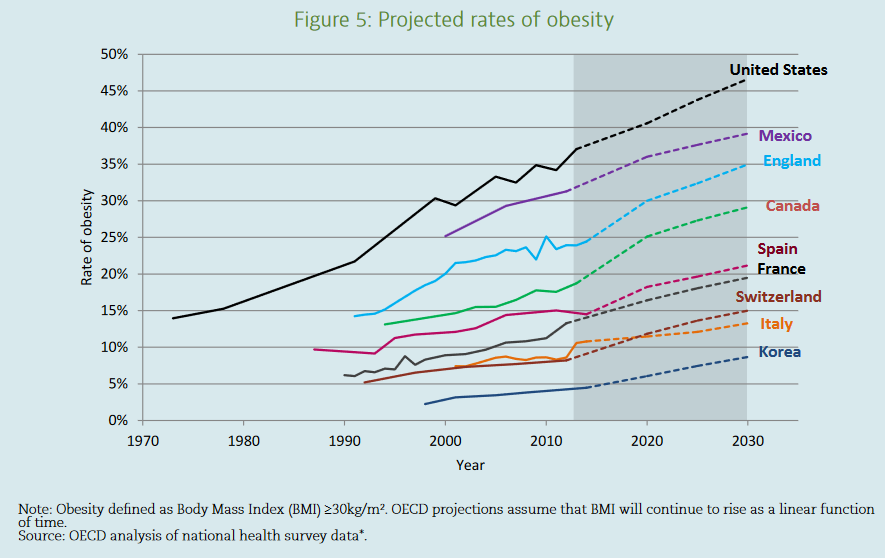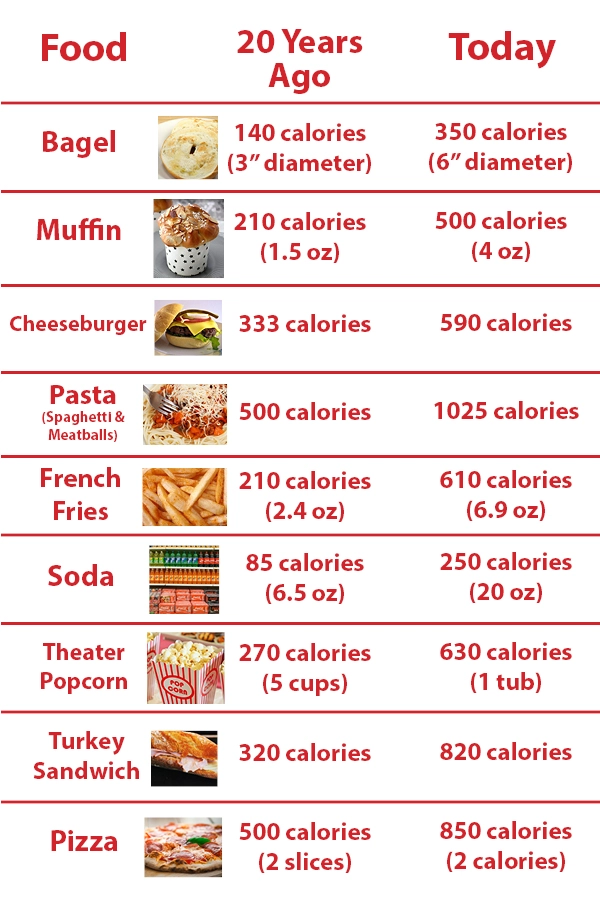How much should I weigh?
America is in the midst of a weight crisis, leading to higher rates of high blood pressure, diabetes, heart attacks, strokes, gallstones, sleep disorders and arthritis. Overweight and obesity are defined using the body mass index (BMI). While this BMI number is an imperfect measure - body fat percentage may be better - it is used because it is easily available. The chart below indicates the definitions.
Height and Weight Chart
In 2020, 38% of New Jersey adults were overweight, and an additional 27% were obese according to the CDC. As the chart below shows, there are enormous country to country differences in the rates of obesity, but rates are rising everywhere. Rates in our country are among the worst.
Why the change over time? Experts primarily blame a rise in our intake of calories, something which starts in childhood. Portion sizes have increased as the graph below shows, and consumption of sugary drinks has soared. The well-intentioned anti-fat messages of the ’80s drove many people concerned about their health to increase their intake of processed carbohydrates and gain weight as a result.
How we eat has also changed. Time and financially pressured Americans eat on the run and often turn to cheap fast foods packed with calories. We are more likely to eat while staring at a screen, gulping down food with little awareness that we are even doing so. We eat for emotional reasons such as a stress reliever. Americans snack between meals more than ever. We exercise less. A typical day for many of us involves a drive to work, sitting at a desk, a drive home, and then relaxation in front of the TV or computer. Poor sleep leads to increased hunger.
What can be done? Begin by eating for the right reasons at the table. Don’t eat to address stress, anxiety, or boredom. Don’t eat while watching TV. Eat meals before you are overly hungry. Eat slowly and just enough to be satisfied but not enough to be stuffed. Always get up from the table knowing you could have had a few more bites. Get enough sleep. Exercise. Eat the right foods. A list of desirable foods is listed below, and you can review the discussion of nutrition labels elsewhere on our website. Perhaps the easiest advice are these 7 words from author Michael Pollen: “Eat food, mostly plants, not too much.” By food, Pollen means real food, natural food that grows in the ground or on trees or in the ocean.





